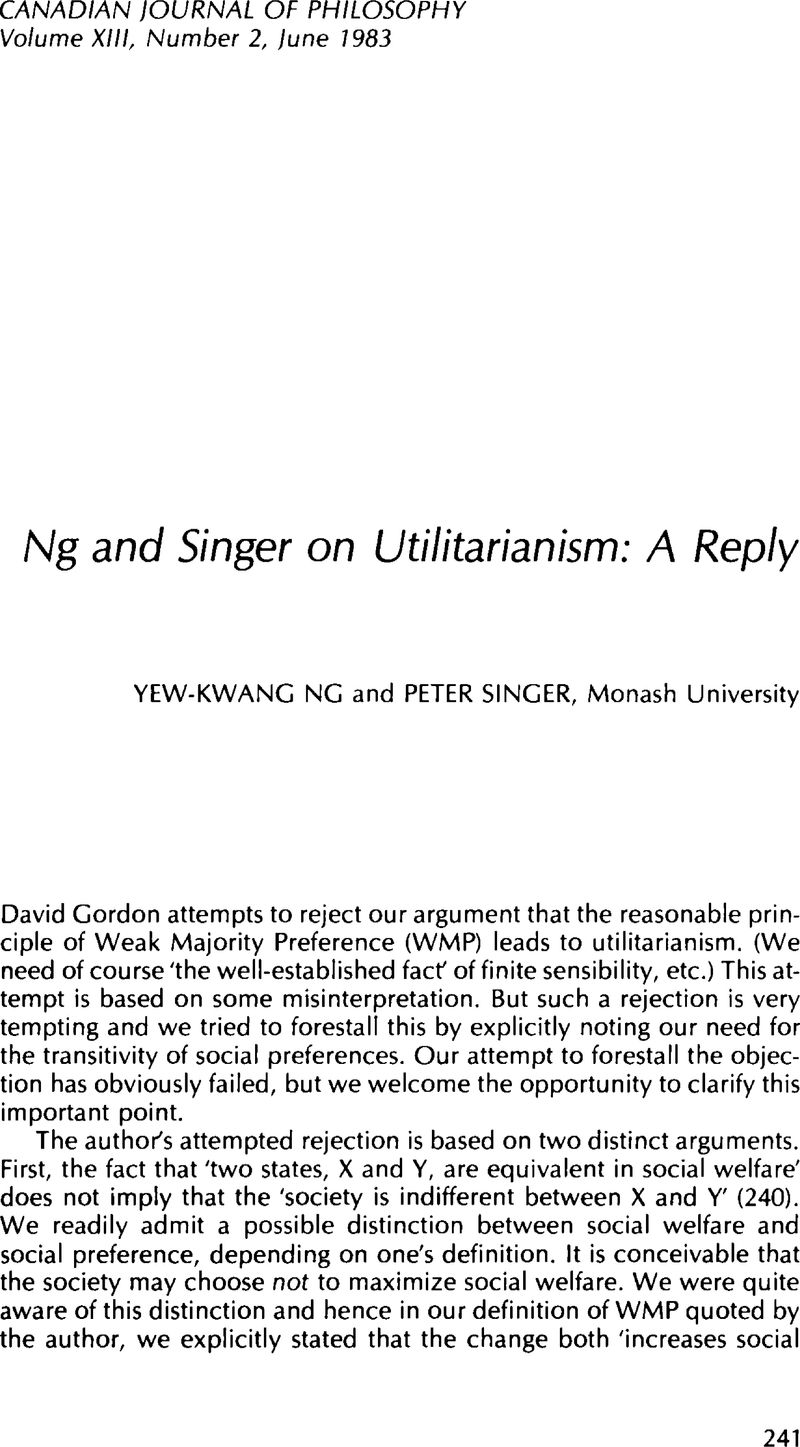No CrossRef data available.
Article contents
Ng and Singer on Utilitarianism: A Reply
Published online by Cambridge University Press: 01 July 1982
Abstract

- Type
- Reply
- Information
- Copyright
- Copyright © The Authors 1983
References
1 As noted in our previous paper (235) this is based on the reasonable assumption that social welfare and social preference do not Jump as individual utilities change infinitesimally. Coupled with what we say about WMP, this assumption of continuity requires that one be indifferent between two states that are equivalent in social welfare.
2 This amounts to the ability to rank any two social states (with individual utilities known for each state for the problem on hand) and that the over-all ranking is consistent in the sense of satisfying transitivity of preferences.
3 If one is to choose between or rank two social states without knowing the individual utilities corresponding to them, then one can reasonably say that one cannot rank them. But in the present context, all such information about individual utilities, distribution, and any other relevant factors is taken as known. If we still refrain from making a consistent ranking of social states then of course we cannot get to utilitarianism since the latter implies a consistent ranking in such a context. The acceptability of our assumption of a social ordering is thus obvious.
4 Forgetting about the case of a variable population where utilitarians differ as to the maximization of the sum versus the mean of utilities, on which see Ng ‘Some Broader Issues of Social Choice,’ in P. Pattanaik and M. Salles, eds., Social Choice and Welfare (Amsterdam: North Holland 1982).




